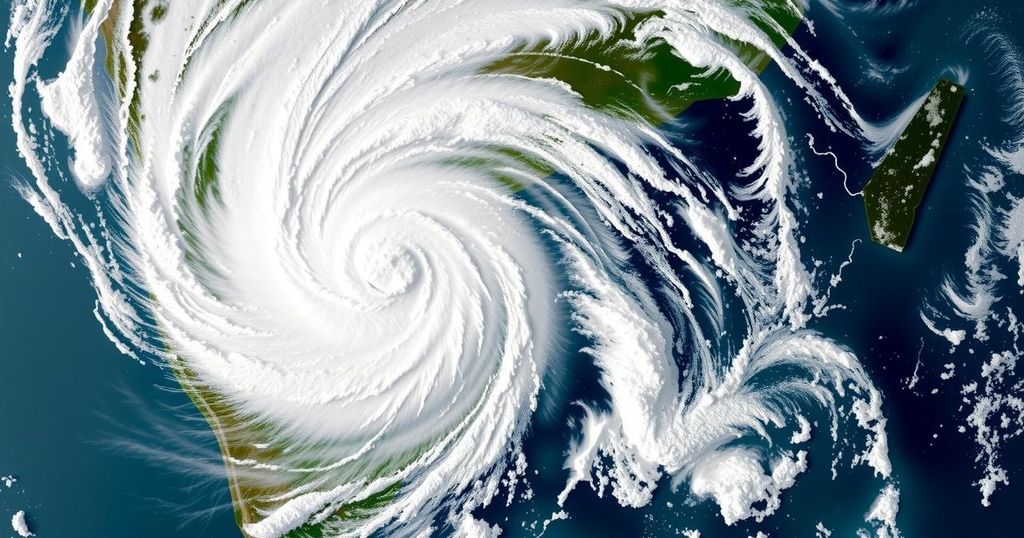Cyclone Chido devastated Mozambique and Malawi, causing significant destruction and displacing thousands. With wind speeds reaching 160 mph, the cyclone resulted in fatalities and damaged critical infrastructure. Experts cite rising Indian Ocean temperatures due to global warming as a contributing factor to the increasing intensity of such events. Immediate needs include emergency shelters and enhanced access to affected areas.
Cyclone Chido has recently wreaked havoc in Mozambique and Malawi, leading to the displacement of thousands of individuals and underscoring the increasing peril posed by extreme weather conditions exacerbated by climate change. This cyclone generated winds reaching up to 160 mph and unleashed torrential rains, resulting in the tragic loss of at least three lives in Mozambique and ravaging critical infrastructure, homes, and educational facilities. Access to several districts remains severely hindered, with power outages complicating emergency response efforts and the need for shelter growing increasingly urgent.
Experts attribute the rise in the frequency and intensity of cyclones to higher temperatures in the Indian Ocean, a phenomenon directly linked to global warming. As temperatures continue to rise beyond normal levels, they create favorable conditions for the formation of powerful cyclones such as Chido. The evidence of this climate trend demands urgent attention and action as communities seek to bolster their resilience against future climate-driven disasters.
The implications of such extreme weather events are profoundly concerning for vulnerable regions, highlighting an urgent need for enhanced infrastructure resilience and effective measures to address the fundamental causes of climate change. As global temperatures rise, it is imperative that countries take proactive steps to mitigate the impacts of such devastating disasters.
The effects of climate change are increasingly manifested through extreme weather patterns, particularly in regions such as southern Africa. Cyclone Chido serves as a stark example of this phenomenon, illustrating the severe implications of rising temperatures in the Indian Ocean, which has been linked to the increasing frequency of cyclones that can lead to tragic consequences for communities. Understanding the relationship between climate change and the intensity of such weather phenomena is critical for devising effective responses and preparedness strategies.
In summary, Cyclone Chido has exposed the inherent vulnerabilities of southern Africa to climate-related disasters. The event has highlighted the devastating impact that extreme weather can have on communities, particularly in Mozambique and Malawi. Urgent action is required to build resilient infrastructure and address the underlying causes of climate change to mitigate future risks and safeguard vulnerable populations.
Original Source: www.dailyclimate.org






